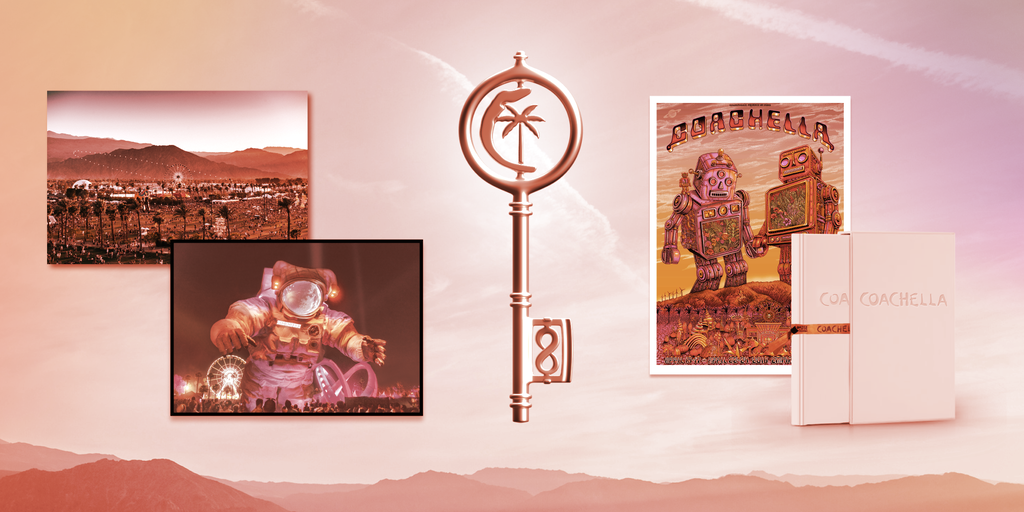Search
FTX customers around the world have assets frozen on the cryptocurrency exchange after its sudden collapse last week, apparently to the tune of billions of dollars’ worth in total. And it’s not just cryptocurrency or DeFi tokens either—some users have NFTs stuck in FTX, too.
Discord servers tied to projects that launched via the FTX NFTs platform over the last year are now filling up with complaints from users who cannot withdraw their Solana-based assets from the FTX account wallet.
In some cases, even those who transferred their NFTs to external, self-custody wallets now can’t see the NFT artwork due to apparent FTX server issues. Links to many of the projects launched through the FTX NFTs marketplace are likewise now broken. FTX announced on Friday that it had filed for Chapter 11 bankruptcy protection.
The affected projects include major music and sports brands, including concert festivals Coachella and Tomorrowland, NBA star Steph Curry’s 2974 NFT collection, and Formula One-themed NFTs from the Mercedes-AMG Petronas racing team.
Coachella announced its partnership with FTX US in February, and its plan to release 10 lifetime festival passes as NFTs was hailed by some as a step forward for mainstream Web3 adoption, not to mention real-world utility for such digital assets.
The festival released various other NFT collectibles alongside the passes. Billboard, which first reported issues around the NFTs on Tuesday, said that the sale generated $1.5 million in total.
Now, however, users in Coachella’s Discord server are reporting that they cannot transfer their purchased NFTs out from their FTX wallets. Others say that the Coachella NFTs held in their self-custody wallets aren’t displaying artwork. Discord moderators have said that it’s apparently due to FTX’s server—which hosted the artwork tied to the NFT—being down.
“We do not currently have any lines of communication with the FTX team,” a Coachella server administrator wrote on Friday. “We have assembled an internal team to come up with solutions based on the tools we have access to. Our priority is getting Coachella NFTs off of FTX, which appears to be disabled at the moment.”
In a statement to Decrypt today, Coachella Innovation Lead Sam Schoonover affirmed that the festival is trying to formulate a response for NFT holders. “We’re actively working on solutions and are confident we’ll be able to protect the interests of Coachella’s NFT holders,” he wrote.
Unlike many NFT marketplaces, FTX NFTs was a custodial platform—which means that it held purchased NFTs for buyers unless they opted to transfer it to an external wallet. Also, given that FTX’s partners were major mainstream brands, it may have served more casual buyers that didn’t bother to transfer the assets to self-custody wallets.
On top of assets initially sold through the FTX NFTs platform, anyone trying to sell another supported NFT through the marketplace—whether from Solana or Ethereum—would have to give FTX custody first. Now those NFTs are stuck on the FTX platform as the firm begins bankruptcy proceedings.
Metaplex, the creator of Solana’s NFT protocol, worked with concert festival Tomorrowland to develop its first NFT drop on FTX NFTs earlier this year. CEO Stephen Hess told Decrypt that the situation illustrates the risks involved with centralized, custodial marketplaces, as users currently have no way of accessing their purchased assets on the platform.
“Unfortunately, since FTX has always run a centralized NFT marketplace, the Metaplex NFTs that weren’t withdrawn ahead of the platform’s collapse will likely be caught up for years in the ongoing bankruptcy process,” said Hess. “We hope this serves as a wake-up call to NFT collectors and creators that escrow-based marketplaces present significant risks.”
Magic Eden, the largest NFT marketplace on Solana, also uses an escrow-based model. Despite the platform’s popularity, it has also faced criticism over potential problems should it face an attack or future bankruptcy. Hess believes that developers are better suited to build with decentralized marketplace protocols, such as Metaplex’s own Auction House.
“With Auction House, even if a marketplace were to collapse, a user would still retain custody of their NFTs and would be able to withdraw their listings on-chain,” he added.
Whether Coachella and other FTX NFT partners can regain control of their projects remains to be seen. Hess said that if the creators retained the ability to modify the metadata—that is, data that specifies the functionality of NFTs—then they may be able to “void the original NFTs stuck in FTX and re-issue them as new tokens.” But all of that remains unclear for now.
FTX NFTs users are part of the growing pile of customers whose potentially valuable digital assets are locked within the overall FTX ecosystem, which the firm said on Tuesday could top one million total creditors. The bankruptcy process, as Hess suggested, could carry on for quite some time.
Decrypt reached out to FTX representatives regarding the NFT issues and whether users will be able to access their assets on the platform but did not immediately hear back.
“Soo I just lost $500?” user "baller4adollar" asked in a room dedicated to Steph Curry’s 2974 NFT project on the official FTXLand Discord server. Some users are asking questions that don’t have easy or immediate answers, while others appear resigned to the fate that there may be no near-term resolution. Others still are trying to keep these tokenized communities together.
“Let’s take it easy here friends, [a] lot of people [are] dealing with a hard time, no reason for us to turn on each other,” wrote user "outlawtorn.eth" in the 2974 channel. “We will stay strong and find a way forward, but it may take some time.”
Author
Administraroot


